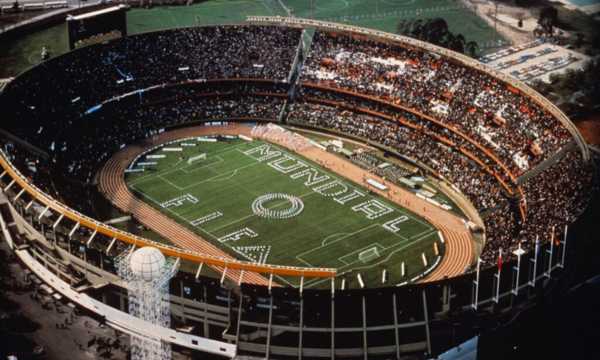Fantasy Premier League turns any regular fan into a coach, scout, and strategist—all in one!
Ad
This fascinating online game attracts millions of players from around the world each season.
While real players battle it out in Premier League stadiums, you’ll build your own virtual team and compete against friends or complete strangers.
Fantasy Premier League offers an entirely new way to experience football, adding an extra thrill to every pass, goal, and save during Premier League matches.
Be the Team Owner: The Basic Concept of Fantasy Premier League
Fantasy Premier League (FPL) puts you in charge of a virtual team made up of real-life Premier League players. Each participant starts with a virtual budget of £100 million to assemble their squad.
Carefully, you’ll select 15 players: 2 goalkeepers, 5 defenders, 5 midfielders, and 3 forwards—all within your budget.
Players earn points based on their real-life performances in the official matches throughout the season. Each win, goal, assist, or clean sheet by your chosen players converts into points for your FPL team.
Key rules to remember:
- Each player has a price based on past performance and popularity.
- Player prices fluctuate throughout the season depending on performance.
- You can only select up to 3 players from the same Premier League club.
- You get 1 free transfer per week to change players in your squad. Additional transfers cost points.
The core of FPL is the combination of football knowledge with statistical analysis.
The most successful managers stay updated with player news, study matchups, and predict trends to maximize their weekly points.
From the Pitch to Points: How Scoring Works
In Fantasy Premier League, the point system rewards different actions during real Premier League games, tailored by player position.
Goalkeepers and defenders earn more for keeping clean sheets, while forwards mostly earn points through goals. Understanding this nuance is key to building a balanced and high-scoring squad.
Basic Points System:
- +1 point for playing up to 60 minutes
- +2 points for playing over 60 minutes
Goals scored:
- +6 for goalkeepers/defenders
- +5 for midfielders
- +4 for forwards
Assist:
- +3 points (any position)
Clean Sheet Bonus:
- +4 for goalkeepers and defenders
- +1 for midfielders
Penalties:
- Penalty Saves (Goalkeeper): +5
- Penalties Missed: -2
- Yellow Card: -1
- Red Card: -3
After every match, bonus points are awarded to the top three best-performing players according to the Bonus Points System (BPS), based on dozens of detailed match stats.
These bonus points can make a huge difference in your total each round.
How the Draft Mode Works in Fantasy Premier League
FPL offers two main game modes: the Classic format and the Draft mode. In the Classic game, the most popular, multiple managers can own the same players.
In Draft mode, however, each real player can only belong to one team within the league. How drafting works:
- Typically takes place before the season begins;
- Draft order is either random or by reverse standings;
- Managers take turns picking players in timed rounds;
- The last pick in round one picks first in round two;
- No budget is used—the focus is solely on selection strategy;
FPL Draft offers an experience closer to managing a real squad. It requires preparation, knowledge of under-the-radar talent, and sharp positional strategy.
One bad pick might cost you the season if another manager grabs your key target!
Building Your Squad: Understanding Player Roles
Each position in FPL carries different strategic value. How you allocate your budget across the positions can determine your success.
Most managers prioritize attacking midfielders and quality forwards because of their high point potential. Positional strategy:
Goalkeepers:
- Choose a starting keeper from a defensively solid team
- Backup keeper should be cheap—preferably a starter from a smaller club
- Target teams likely to keep clean sheets
Defenders:
- Prioritize fullbacks/wingbacks with attacking returns (crosses, assists, goals)
- Defenders from top clubs are more likely to get clean sheets
- Good-value defenders who start every match are FPL gold
Midfielders:
- Look for midfielders who play in advanced roles
- Penalty and free-kick takers are extremely valuable
- Mix expensive stars with budget options performing well
Forwards:
- Choose forwards who are the main finishers on their team
- Prioritize strikers who take penalties
- Check injury history before investing heavily
Balancing these roles depends on your playstyle and availability of good options for each gameweek.
Weekly Lineup Management & The Waiver Wire
Managing your team week by week is just as important as how you initially build it. Before every gameweek, you must set your lineup and choose a captain, who earns double points.
Gameweek deadlines are usually one hour before the first kickoff. Missing this can mean injured or benched players remain in your team.
In Draft mode, there’s a Waiver Wire system for picking up unowned players. Waiver priority is commonly determined by reverse standings, giving struggling managers the first pick.
This provides a second chance to discover emerging talent or grab players returning from injury.
In Classic FPL, changes in player prices occur daily based on how often players are bought or sold, affecting your squad value.
Weekly Head-to-Head and Global Competition
In traditional Classic FPL, you compete globally based on your total accumulated points. You can also join or create private leagues to compete against friends, coworkers, or family. League types:
- Classic League: Rankings based on total points throughout the season.
- Head-to-Head: Weekly matchups against one opponent, like a real league with wins/losses.
- Knockout Cup: Starts mid-season and has an elimination format.
- Monthly Leagues: Track performance during specific periods.
In Draft mode, Head-to-Head matchups are standard, with the league winner determined by who wins the most weekly matchups.
FPL automatically generates matchup schedules. Some custom leagues also include playoffs at the end of the regular season.
PPR or Standard? Know Your League Format
There are various FPL league structures, which can significantly affect your strategy.
Most public leagues follow the standard rules set by the Premier League, but private leagues can customize their scoring systems. Popular formats:
- Standard: Use the official rules and points.
- Draft: One-of-a-kind squads, no budget, pick in turns.
- Head-to-Head: Weekly duels rather than overall score.
- Dynasty: You carry over some players or budget into the next year.
- Survival: Lowest scorer each week gets eliminated.
Unlike Fantasy NFL, FPL does not use a PPR (Points Per Reception) system.
Still, custom leagues may add fun scoring twists—like giving extra points to players from underdog teams who beat top clubs.
Choose the format that best suits your group’s competitiveness and experience level.
Golden Tips to Begin Your Fantasy Premier League Journey
Starting in Fantasy Premier League can be overwhelming, but a few core principles can help avoid beginner mistakes:
- Manage your budget wisely—don’t spend everything on big stars at the cost of your bench;
- Know your set-piece takers—penalty and free-kick duties offer big value;
- Study the fixture schedule—strategic planning is key;
- Be cautious with newly promoted players/teams—watch before you buy;
- Stay informed—follow trusted sources for lineup/injury news;
- Avoid impulsive transfers—one bad game doesn’t mean you should sell;
- Be patient—don’t chase every trend or overreact to a single game;
- No club loyalty! Pick players based on performance, not your favorite team;
Remember: FPL is a marathon, not a sprint. A slow start can be made up for with smart decisions during the long 38-week season.
Why Fantasy Premier League Is So Popular Worldwide
With over 9 million players globally, FPL has become a cultural phenomenon. Its success lies in blending straightforward gameplay for beginners with deep, strategic elements for experts.
FPL is also a gateway for international fans to discover Premier League teams and players beyond just the usual giants.
Many players say they started watching only their favorite club but now follow nearly all games each weekend because of Fantasy Premier League.
Its unique mix of football analysis, statistics, and unpredictable drama keeps millions of players hooked season after season.
Conclusion
Fantasy Premier League offers a unique experience that transforms how we watch and enjoy English football.
Whether you’re a casual fan or a stats-obsessed tactician, the game adds an extra layer of excitement to every Premier League match.
Remember: it’s all about fun. That last-minute injury to your captain or a disallowed VAR goal is just part of the ride.Just like the actual Premier League, consistency beats occasional brilliance.
With the insights in this guide, you’re ready to build your squad and begin your journey into the fantastic world of Fantasy Premier League.


